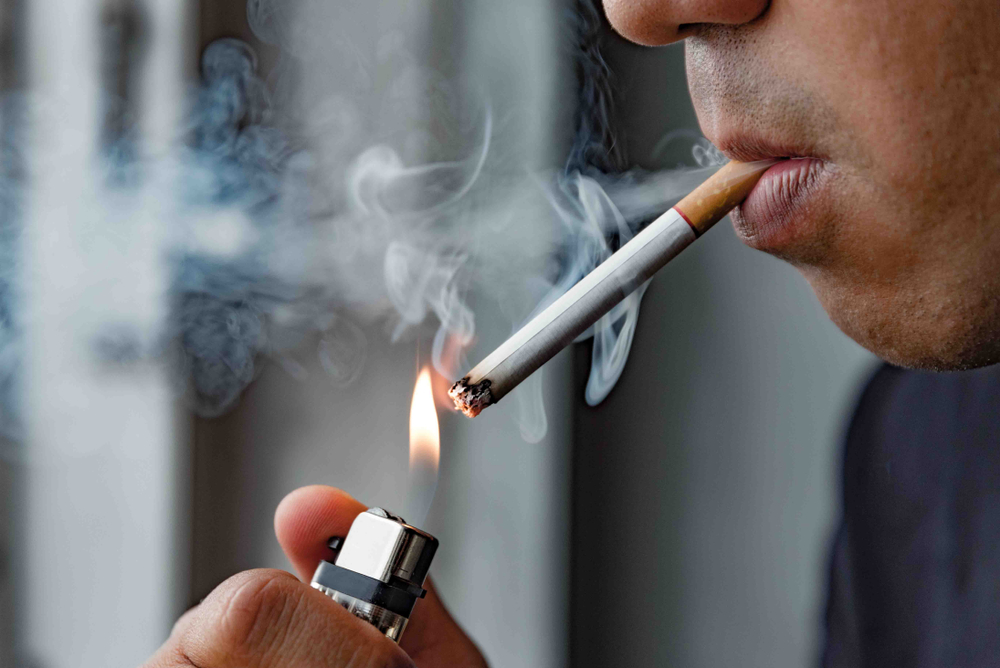Breaking Free from Smoking’s Damage
Every morning when you look in the mirror, do you notice your gums bleeding when you brush? As a smoker, you’re not alone in this struggle, but you don’t have to accept it as normal. Smoking makes your gums four times more likely to develop serious disease, but the good news is there’s expert help near you.
Whether you’re searching for “gum disease treatment near me” in Miami, Coral Gables, or Homestead, call Dr. Mark Gutt‘s Miami dental office at (305) 538-2112. For those near Key West, Islamorada, or Marathon, reach the Key West location at (305) 294-4661. Don’t let smoking steal another day from your smile. Schedule your consultation today.
Gum Health Basics
Healthy gums are the foundation of a strong smile. They should appear pink, firm, and fit snugly around your teeth without bleeding during brushing or flossing. Your gums serve as a protective barrier, sealing out harmful bacteria and supporting the structures that hold your teeth in place.
Gum problems typically develop in stages. Gingivitis, the early stage of gum disease, causes inflammation, redness, and bleeding of the gums. Left untreated, it can progress to periodontitis, a more severe condition where infection destroys the tissues and bones supporting your teeth. The key difference is that gingivitis is reversible with proper care, while periodontitis causes permanent damage.
How Smoking Directly Damages Your Gums
Smoking attacks your gums through three devastating pathways that create the perfect storm for oral health problems:
Reduced Blood Flow and Oxygen: Nicotine narrows blood vessels, reducing gum blood flow by up to 50%, while carbon monoxide reduces your blood’s oxygen-carrying capacity. This poor circulation weakens gum tissue and severely impairs healing ability.
Immune System Suppression: The over 7,000 chemicals in cigarettes suppress your immune system, reducing white blood cell effectiveness and decreasing protective antibody production. This allows harmful bacteria to overwhelm your natural defenses.
Chemical Irritation: Toxic chemicals and heat from smoking directly damage gum tissue while tar accumulation creates a hostile environment for healthy tissue growth and repair.
The Smoking-Gum Disease Connection
The statistics surrounding smoking and gum disease are staggering. Smokers are not only four times more likely to develop gum disease, but smoking is also responsible for more than half of all periodontitis cases in adults. The risk increases dramatically with pack-years (packs per day multiplied by years of smoking), with heavy smokers facing the highest risks.
One of the most insidious aspects is that smoking masks gum disease symptoms by reducing blood flow, preventing the bleeding and swelling that typically alert people to problems. By the time symptoms become noticeable, significant damage has often already occurred. Smokers lose twice as many teeth as non-smokers, with heavy smokers losing an average of one additional tooth for every 10 years of smoking.
How Smoking Slows Healing After Dental Procedures
Smoking interferes with every aspect of your body’s natural healing process. The nicotine-induced reduction in blood flow means healing tissues receive inadequate nutrients and oxygen, while impaired immune response leaves surgical sites vulnerable to infection. Smoking also reduces collagen production, which is essential for wound healing and tissue strength.
The complications are procedure-specific and dramatic:
- Tooth Extractions: Three to four times higher risk of dry socket
- Gum Surgery: Slower healing, higher infection rates, unpredictable outcomes
- Dental Implants: Failure rates can reach 20% vs. 5% in non-smokers
- Root Canal Treatment: Slower healing and higher failure rates
The Vicious Cycle: Smoking, Gum Disease, and Overall Health
The relationship between smoking, gum disease, and overall health creates a destructive cycle that extends far beyond your mouth. Smoking damages gum health, leading to chronic infection that keeps your immune system constantly fighting oral bacteria, leaving fewer resources for maintaining health elsewhere in your body.
This chronic oral infection has been linked to nearly double the risk of heart disease, makes diabetes blood sugar control more difficult, and increases the risks of pregnancy complications, including preterm birth and low birth weight. The inflammatory chemicals produced in response to gum infection can enter the bloodstream and contribute to systemic health problems throughout your body.
What Smokers Can Do: Treatment and Prevention
If you smoke, working closely with dental professionals becomes critical for maintaining any level of oral health. Dr. Mark Gutt and his team understand the unique challenges smokers face and provide specialized care at convenient locations in Miami and Key West. Smokers typically need more frequent cleanings every three to four months instead of the standard six months, along with more intensive periodontal treatments.
Enhanced home care becomes essential, including diligent brushing and flossing with products designed for smokers’ specific needs. Watch for warning signs like persistent bad breath, bleeding gums, loose teeth, or sores that don’t heal within two weeks. Because smoking can mask symptoms, being alert to subtle changes becomes even more important for early detection and treatment.
The Benefits of Quitting Smoking
The good news is that quitting smoking can dramatically improve your oral health, with benefits beginning almost immediately. Within 24 hours of quitting, blood flow begins to improve, allowing better delivery of nutrients and oxygen to your gum tissues. Within a week, inflammation decreases, and your immune system starts recovering its ability to fight oral infections.
Timeline of Improvements:
- 24 Hours: Better blood flow to gums
- 1 Week: Decreased inflammation and improved immune response
- 1 Year: Significantly reduced gum disease risk
- 10 Years: Risk approaches those of never-smokers
Quitting Smoking: Resources and Support
Multiple effective methods exist to help you quit, including nicotine replacement therapy, prescription medications, behavioral support programs, and alternative approaches like acupuncture or mindfulness programs. Combining medication with behavioral support often provides the best success rates.
Available Support Resources:
- National Quitline: 1-800-QUIT-NOW (1-800-784-8669)
- Online support at smokefree.gov
- Mobile apps and text messaging programs
- Healthcare provider support and prescribed cessation aids
- Community smoking cessation classes

Your Gums Can’t Wait Another Day
Your gums are fighting a losing battle against smoking’s toxic damage every single day. But it’s not too late to change your story. Whether you’re in Miami, Coral Gables, Homestead, or surrounding areas, call Dr. Gutt’s Miami office at (305) 538-2112. For those in Key West, Islamorada, Marathon, or nearby communities, reach the Key West dental clinic at (305) 294-4661. Don’t let another day pass – your journey to healthier gums starts with one phone call that could transform your smile and your life.

